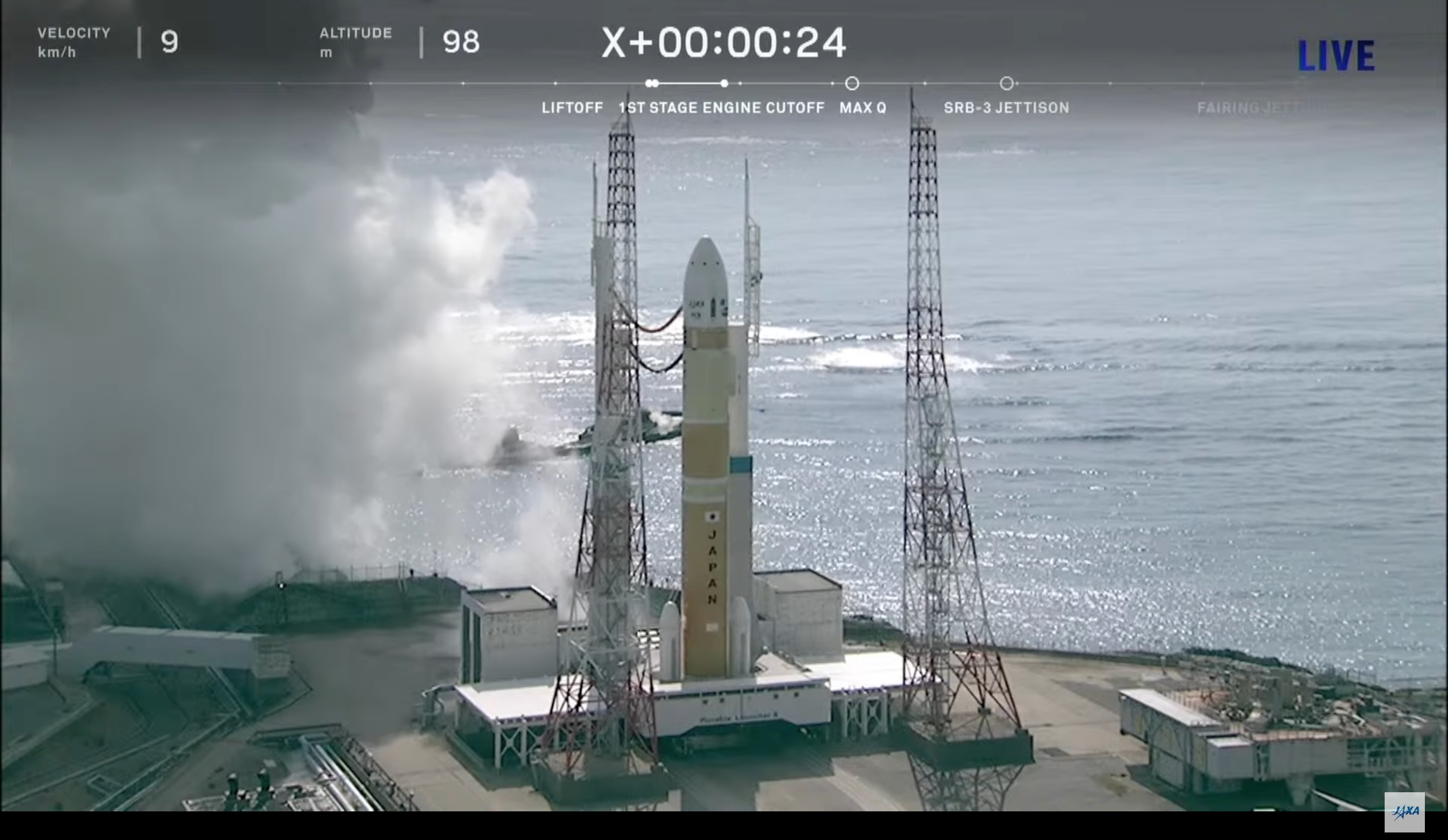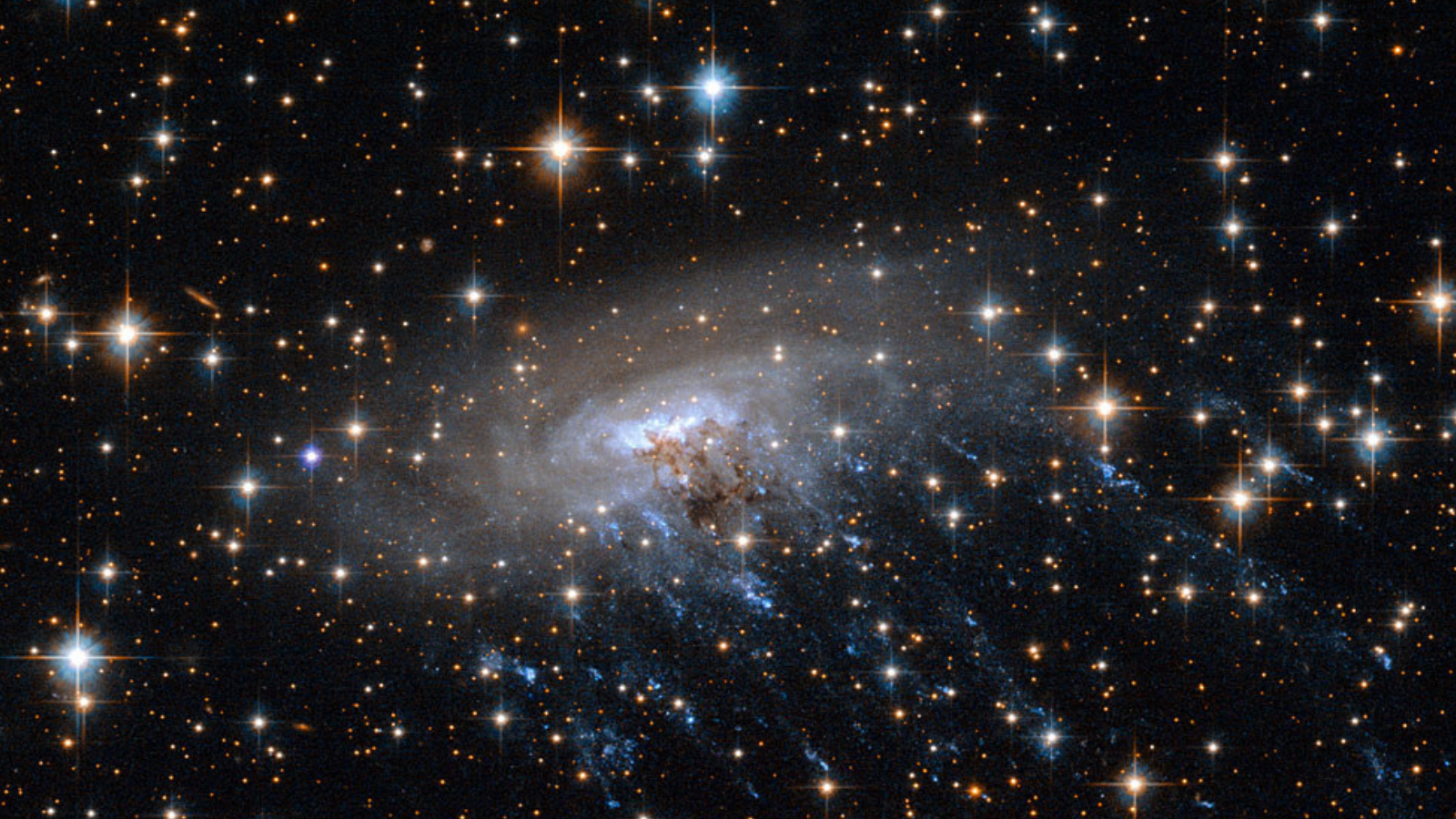Japan's new H3 rocket aborts 1st-ever launch attempt

Breaking space news, the latest updates on rocket launches, skywatching events and more!
You are now subscribed
Your newsletter sign-up was successful
Want to add more newsletters?

Delivered daily
Daily Newsletter
Breaking space news, the latest updates on rocket launches, skywatching events and more!

Once a month
Watch This Space
Sign up to our monthly entertainment newsletter to keep up with all our coverage of the latest sci-fi and space movies, tv shows, games and books.

Once a week
Night Sky This Week
Discover this week's must-see night sky events, moon phases, and stunning astrophotos. Sign up for our skywatching newsletter and explore the universe with us!

Twice a month
Strange New Words
Space.com's Sci-Fi Reader's Club. Read a sci-fi short story every month and join a virtual community of fellow science fiction fans!
Japan's powerful new rocket will have to wait a bit longer to get off the ground.
The H3 rocket aborted its first-ever launch attempt on Thursday evening (Feb. 16), a test flight from Japan's Tanegashima Space Center that was supposed to send an Earth-observing satellite to orbit.
The H3 made it all the way through the countdown to T-0, which occurred as planned at 8:37 p.m. EST (0137 GMT and 10:37 a.m. Japan Standard Time on Feb. 17). The two LE-9 engines that power the vehicle's core stage ignited, but its two solid rocket boosters did not, commentators said during the livestream of the launch, which was provided by the Japan Aerospace Exploration Agency (JAXA).
The rocket remained groundbound and in one piece.
Related: The history of rockets
During the countdown, "an anomaly was found in the first-stage system, and ignition signals for SRB-3s were not sent," JAXA officials wrote in a brief update on Friday, referring to the two solid rocket boosters. The nature and cause of that anomaly was not specified; further investigation will doubtless focus on those questions.
Thursday's abort adds to the delays in the H3's journey to orbit. JAXA and its commercial partner, Mitsubishi Heavy Industries, have been developing the rocket for a decade.
Breaking space news, the latest updates on rocket launches, skywatching events and more!
JAXA has high hopes for the H3, which is designed to be flexible and cost-effective. The new vehicle will soon replace Japan's workhorse H-IIA rocket, if all goes according to plan.
The satellite that was supposed to fly today is called the Advanced Land Observing Satellite-3 (ALOS-3), also known as DAICHI-3.
The 3-ton ALOS-3 will be able to resolve features as small as 2.6 feet (0.8 meters) wide on our planet's surface from its final perch in low Earth orbit, JAXA officials have said. Its observations will have many applications, including disaster monitoring and response.
Thursday's planned launch was originally targeted for Tuesday (Feb. 14), but bad weather caused a two-day delay.
Japan has launched one orbital mission so far this year: An H-IIA successfully delivered Japan's IGS Radar 7 surveillance satellite to orbit on Jan. 25.
Editor's note: This story was updated at 1:30 a.m. ET on Feb. 17 to clarify that both solid rocket boosters, not just one, failed to ignite as planned during the Feb. 16 launch attempt. It was updated again at 12:20 p.m. ET on Feb. 17 to include the update from JAXA.
Mike Wall is the author of "Out There" (Grand Central Publishing, 2018; illustrated by Karl Tate), a book about the search for alien life. Follow him on Twitter @michaeldwall. Follow us on Twitter @Spacedotcom or Facebook.

Michael Wall is a Senior Space Writer with Space.com and joined the team in 2010. He primarily covers exoplanets, spaceflight and military space, but has been known to dabble in the space art beat. His book about the search for alien life, "Out There," was published on Nov. 13, 2018. Before becoming a science writer, Michael worked as a herpetologist and wildlife biologist. He has a Ph.D. in evolutionary biology from the University of Sydney, Australia, a bachelor's degree from the University of Arizona, and a graduate certificate in science writing from the University of California, Santa Cruz. To find out what his latest project is, you can follow Michael on Twitter.
